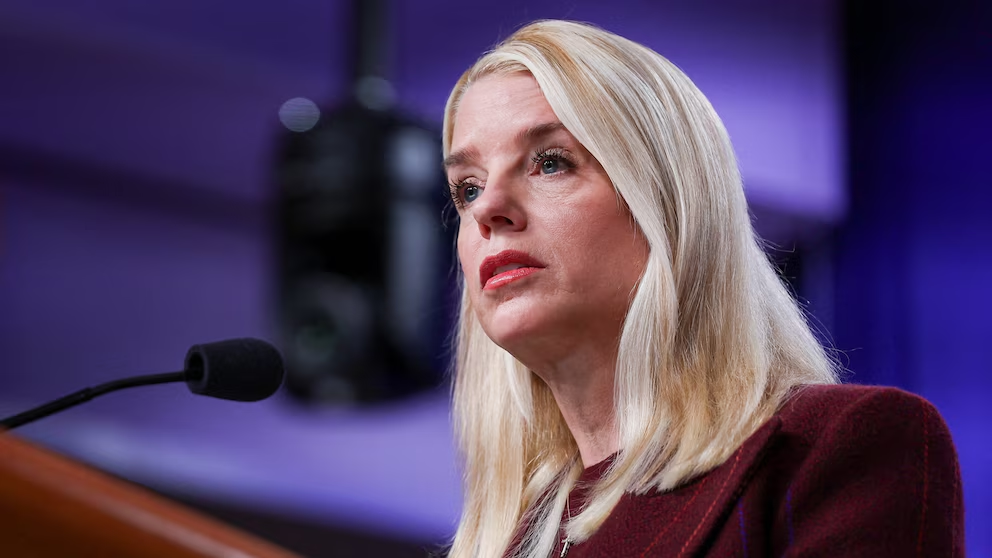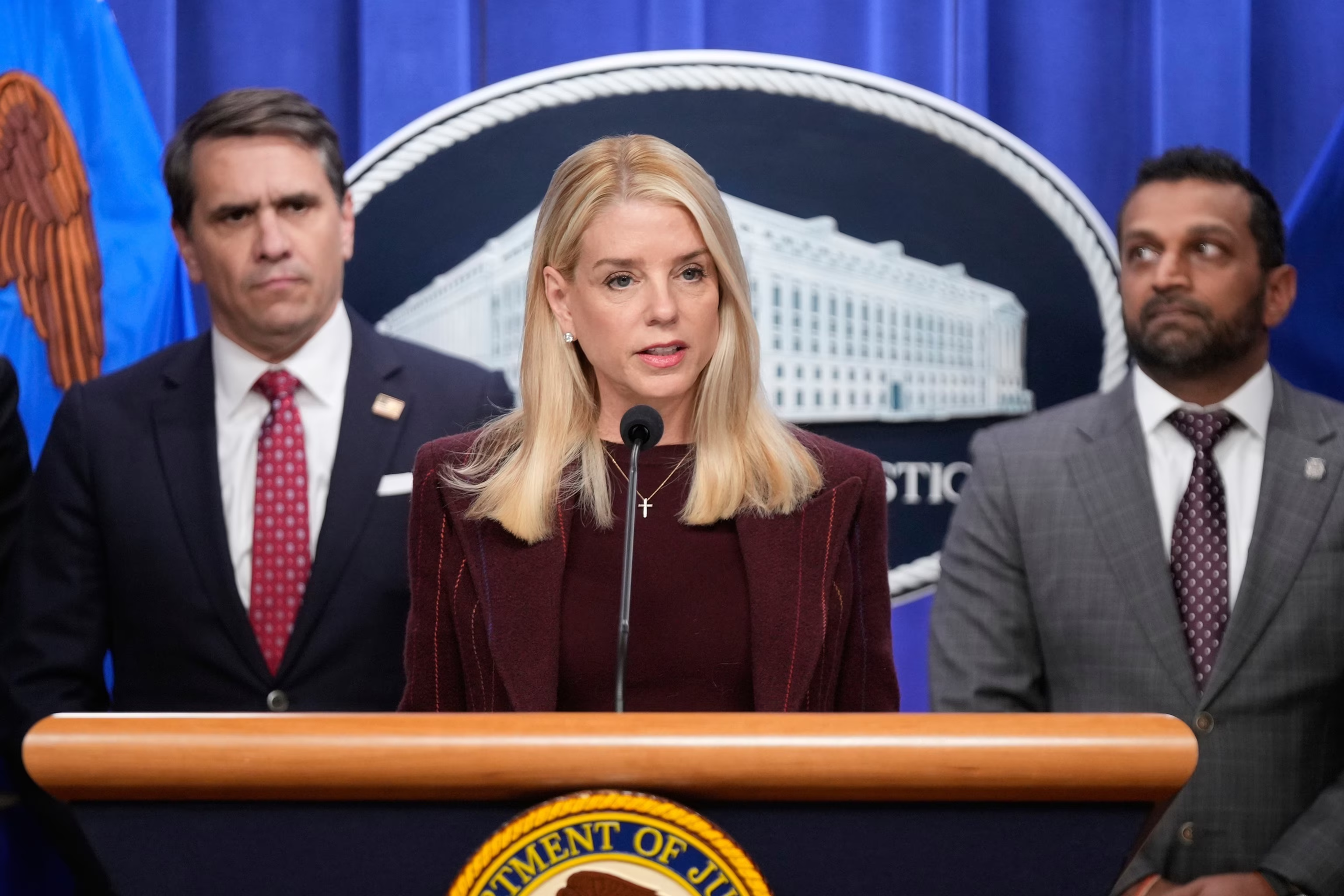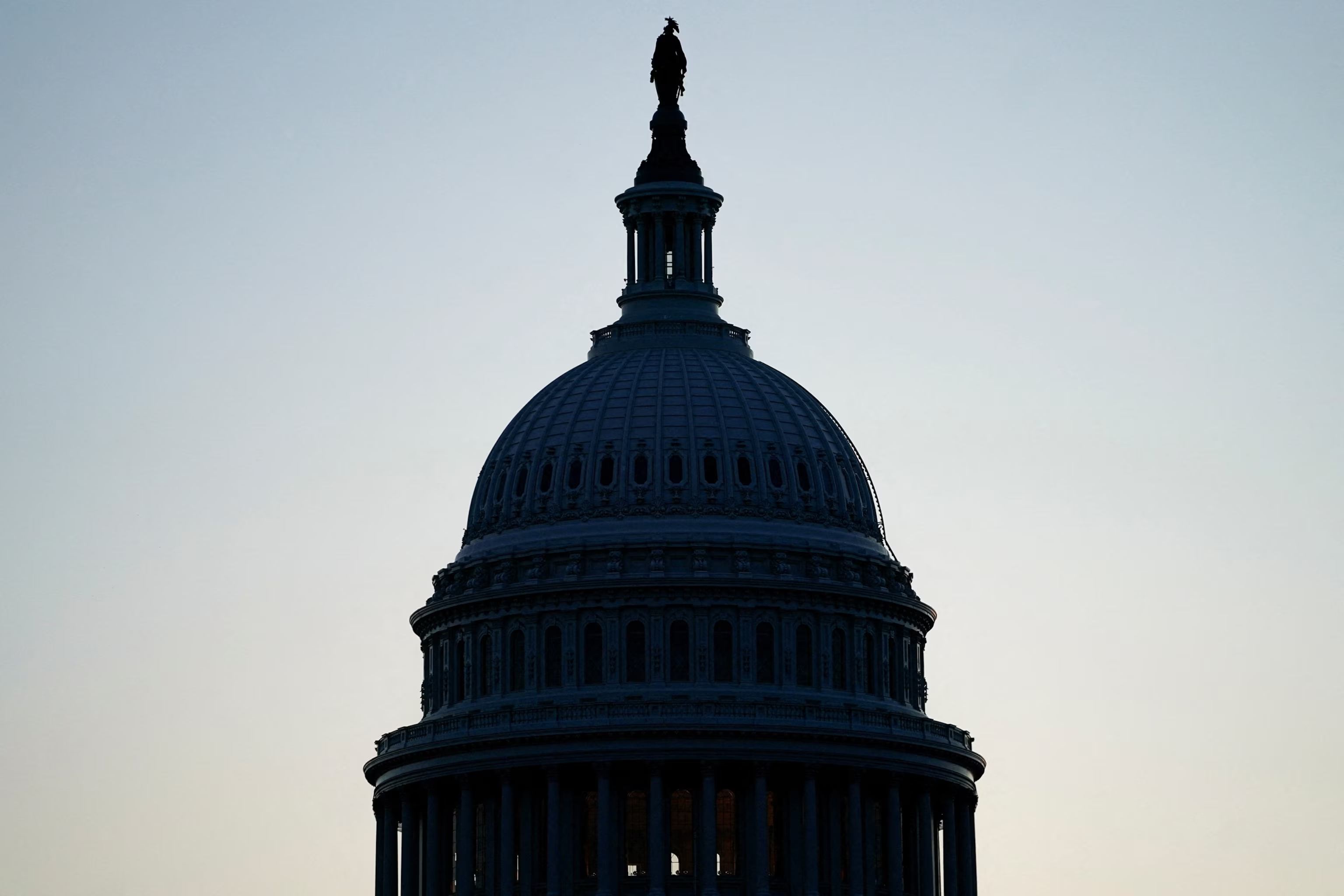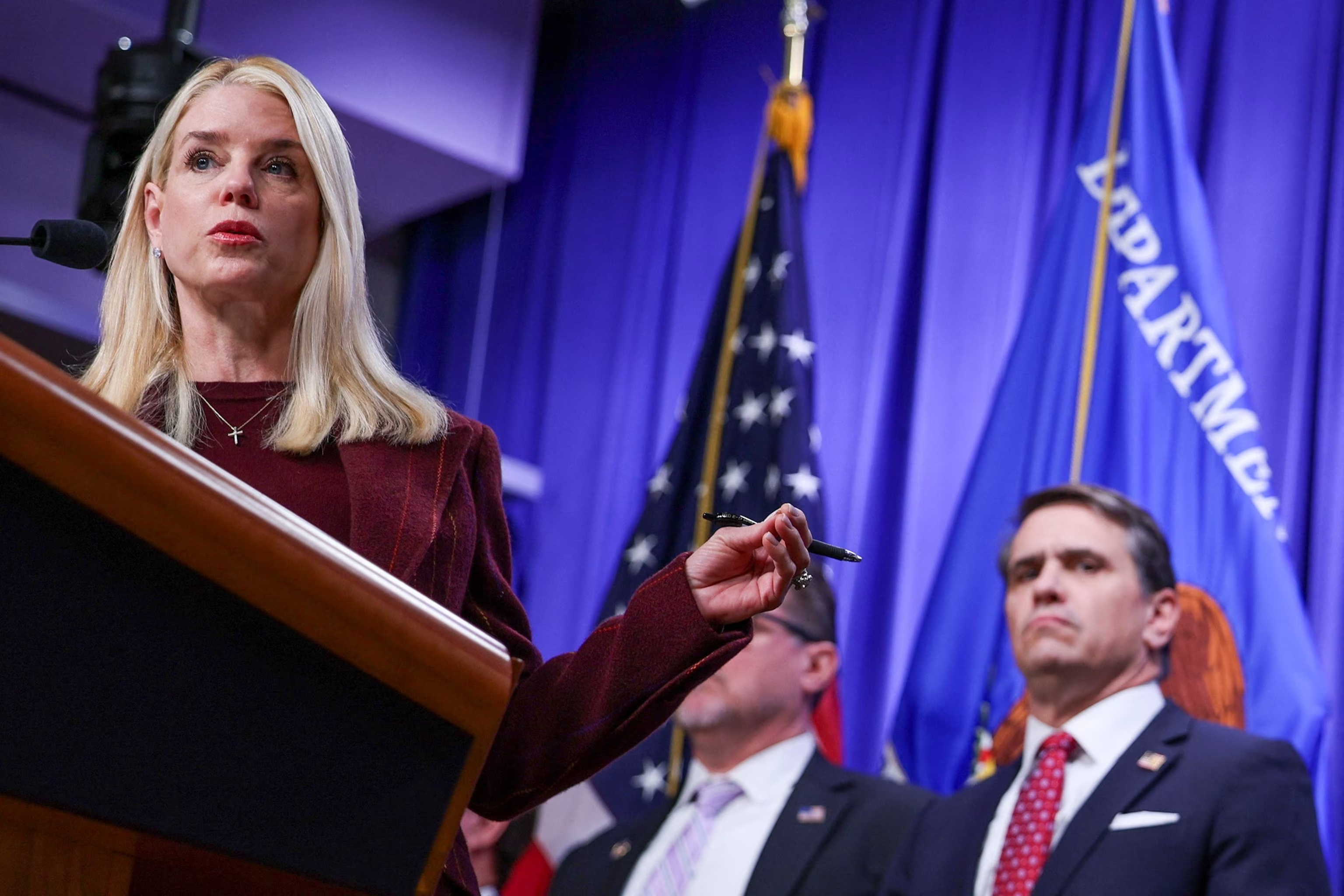
1:50Attorney General Pam Bondi addresses journalists during a press briefing at the Justice Department, Nov. 19, 2025, in Washington.Tom Brenner/Reuters
Even with Congress overwhelmingly approving legislation mandating the Justice Department to make public its records regarding convicted sex offender Jeffrey Epstein, and assuming President Donald Trump signs it into effect, the timeline — or even the certainty — of the public accessing those records remains unclear, along with the scope of their completeness.

Attorney General Pam Bondi speaks with reporters during a news conference at the Department of Justice, Nov. 19, 2025, in Washington, as Deputy Attorney General Todd Blanche and FBI Director Kash Patel, observe.Mark Schiefelbein/AP
In response to a question on Wednesday about her reaction to Congress, Attorney General Pam Bondi stated, "We have already supplied over 33,000 Epstein documents to Congress, and we will continue to act in accordance with the law and uphold maximum transparency." She made these remarks at a separate press event alongside FBI Director Kash Patel and Deputy Attorney General Todd Blanche.
The legislation incorporates several exemptions to a complete disclosure, which might complicate or postpone the release.
Timeline
The legislation stipulates that the Justice Department has a maximum of 30 days following its enactment to make "publicly accessible in a searchable and downloadable format all unclassified records, documents, communications, and investigative materials in the possession of the Department of Justice, encompassing the Federal Bureau of Investigation and United States Attorneys' Offices, pertaining to Jeffrey Epstein including all inquiries, legal proceedings, or detention-related matters."

The U.S. Capitol building on Capitol Hill, located in Washington, D.C., November 13, 2025.Nathan Howard/Reuters
Should Trump approve the bill on Wednesday, the department would potentially have until December 19 to release the details of the Epstein investigation.
Potential redactions, withholding of other information
According to the bill, the Justice Department "may withhold or redact" the identities and "personal and medical records" of Epstein's victims.
"We will continue to adhere to the law while safeguarding victims," Bondi reiterated, when questioned further by journalists.
"We are committed to protecting victims, and the current legislation allows us to do so. The law includes provisions designed to protect victims and their related information, which is our practice, not only in this specific instance, but in every case," Blanche added.
Speaker of the House Mike Johnson stated that he has informed the president that the legislation is insufficient in protecting victims from being identified.
The DOJ is also permitted to withhold materials that "would represent a clear and unjustified invasion of personal privacy" or "depicts or includes child sexual abuse," as per the bill.
However, the bill also includes language that specifies, "no record shall be withheld, delayed, or redacted on the grounds of embarrassment, reputational harm, or political sensitivity, including that of any government official, public figure, or foreign dignitary"
'Ongoing' investigations
The measure also indicates that the Attorney General can withhold or redact information that "would compromise an ongoing federal inquiry or current prosecution, provided that such withholding is narrowly applied and temporary."
In cases where the DOJ chooses to withhold or redact materials, it is obligated, within 15 days of the public release, to detail its justifications for doing so.

Attorney General Pam Bondi speaks during the announcement of a law enforcement action as Deputy Attorney General Todd Blanche listens during a press conference at the Department of Justice in Washington, November 19, 2025.Tom Brenner/Reuters
The bill's exception concerning an "ongoing investigation" could encompass the fresh examination of possible connections between leading Democrats and Epstein, which Trump instructed Bondi to pursue last Friday.
When questioned by ABC News Chief Justice Correspondent Pierre Thomas about her July statement, which indicated that a review of the documents and existing evidence did not suggest any further investigation into third parties was justified, Bondi replied that there is "new data, supplementary data."
"We will continue to abide by the law to probe all leads. If there are any victims, we encourage all victims to come forward," she stated, without providing any specifics, citing a pending inquiry in the Southern District of New York.
When Trump altered his stance, supporting the congressional vote to release the files on Sunday, his post notably featured limiting language, stating that the House "can have whatever they are legally entitled to."
-ABC News' Alexander Mallin, Allison Pecorin, Lauren Peller and John Parkinson assisted in the creation of this report.
Sourse: abcnews.go.com






